Hospital & Nursing Facility Team Up For Better Care
Partnership aimed at educating young physicians and medical students about geriatric care.
Ellen Alperen, PhD
8/11/2011
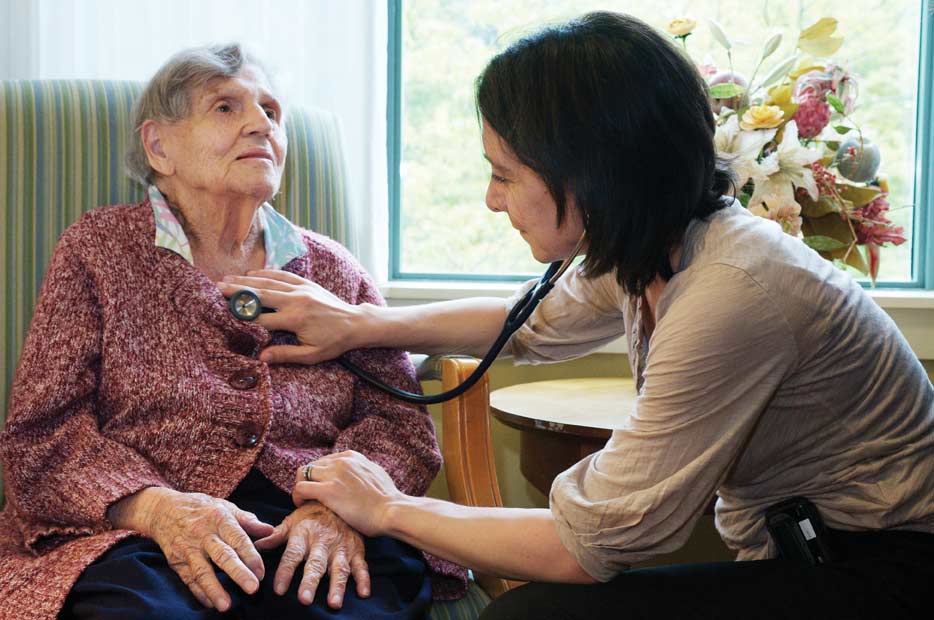
As the senior population grows, more individuals are seeking elder-specific medical care and treatment. This increased demand has revealed a frightening reality: The medical field is not keeping pace with the mounting needs of the aging and rapidly expanding senior population.
According to the American Geriatrics Society, there is currently one geriatrician for every 2,699 Americans 75 or older.
That ratio is expected to drop to one geriatrician for every 5,549 older Americans by 2030. The lack of doctors going into geriatrics has been making news both locally and nationally for years.
But what can be done to combat this deficiency?
Learning By Doing
At EPOCH Senior Healthcare of Chestnut Hill in Massachusetts, officials have formed a partnership with doctors from Beth Israel Deaconess Medical Center to create a program designed that immerses young physicians in geriatrics.
More elderly hospital patients are being discharged to post-acute care for both long-term stays and short-term rehabilitation. And yet geriatricians at those hospitals often do not witness this transition, nor do they see their patient at the senior care facility directly. This can lead to less than satisfactory care.
The partnership between EPOCH and Beth Israel, a teaching hospital of Harvard Medical School, is filling that missing link by exposing young doctors to nursing facility care firsthand.
Not many nursing facilities have teaching programs, says Virginia Cummings, MD, who runs the program and leads the geriatrics program at Beth Israel.
The Division of Gerontology at Beth Israel is one of the oldest and largest academic programs on aging in the country. It includes clinical and research faculty from Hebrew SeniorLife, one of the nation’s leading clinical research centers in gerontology.
“So many discharges from the hospital go to a nursing home,” she says. “It’s important for doctors to be familiar with the nursing home setting, and few of them are. This program is unique in trying to remedy that.”
Three doctors, who are completing year-long fellowships through the Harva
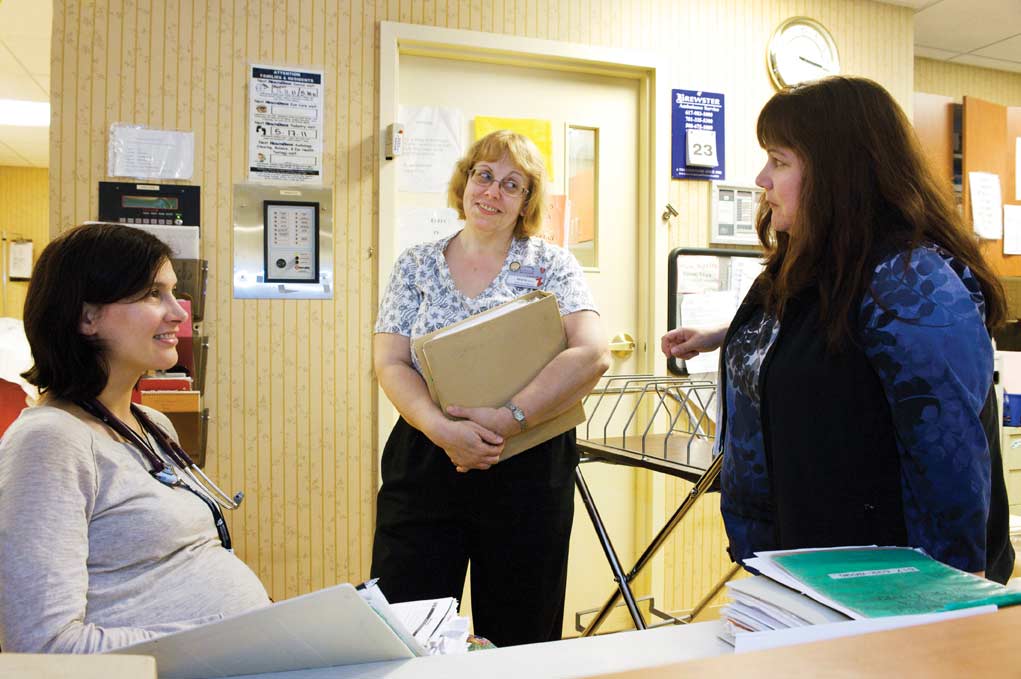
rd Medical Hospital Division on Aging, are currently enrolled in the program at EPOCH. The goal of the program, Cummings says, is to immerse the doctors, or fellows, in all aspects of the hospital-to-nursing facility transition, as well as in rehabilitation, Alzheimer’s care, administrative duties, and other subjects, such as medication management and nuances of Medicare and Medicaid insurance.
The fellows obtain a big picture view of the elder care environment and also work directly with residents and their families.
In addition, Harvard Medical students visit EPOCH during their third and fourth year geriatrics elective. The goal is to expose students to all aspects of geriatric care in hopes that some of them will be motivated to pursue training in geriatrics. Fellows also speak to fellow students about their experience in the nursing facility environment, in effect expanding the reach of the program through peer interaction.
Misconceptions Dispelled
Many of the students are not familiar with elder care and have misconceptions about the nursing facility environment, Cummings says. Medicare and Medicaid are foreign concepts for many of them, as are the intricacies of medication interactions among the elderly.
“Learning how an incision or wound heals in a senior versus a young person, or how an elderly patient with trouble swallowing can improve with speech therapy, these are important nuances to elder care that will help them be better in their work,” Cummings says.
Residents and families of EPOCH Senior Healthcare of Chestnut Hill are aware of the fellows program and appreciate the effort and care the student physicians bestow on the residents.
“The residents enjoy these students, as they are able to spend more time with the residents than a
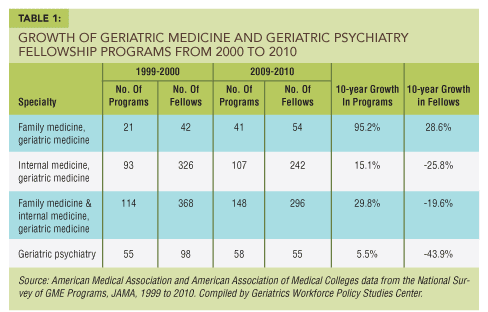
typical visiting doctor who must move quickly to accommodate many patients,” Cummings says.
Fellow Tia Kostas of Boston has been visiting EPOCH since July 2010 as part of Cummings’ program and looks forward to her time at the community. “We see long term care patients who have been there for awhile, as well as the short-term rehab patients. It’s nice to get the two different perspectives,” she says. “It’s a fun environment. They do a lot of activities. It’s nice to interact with patients. The aides and nurses help them enjoy life to the fullest.”
Kostas says the program has strengthened her desire to work in the geriatrics field. While she is not sure if she wants to work specifically in a senior living health care facility, her experience has given her insight into the variety of care options for seniors.
“[My time in the program] has had only a positive impact on me. I feel so lucky we get to go,” Kostas says. “The nursing staff really know their patients. They notice the little things, like if a patient is not eating quite the same, or if their gait is a little bit off. That sort of attention is really helpful as a doctor.”
F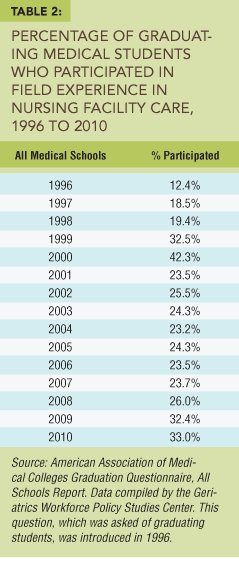 acility Rewards
acility Rewards
Though the fellows benefit from the program, the rewards do not end there. EPOCH staff get to interact with, learn from, and teach the fellows in a one-on-one setting. The constant refresher in current techniques and best practices is valuable to staff members, the fellows, and, of course, residents.
The fellows are young and curious—they provide a fresh set of eyes that residents and family members appreciate. The entire community benefits from knowing EPOCH is helping address a significant problem in elder care.
Fellows have been visiting EPOCH for about two years for this program, with each batch completing their year-long rotation on June 30. EPOCH hopes to continue this partnership for as long as possible, given the numerous benefits for all parties involved.
The need for more doctors specializing in geriatrics is a very real concern, particularly for the baby boomer generation. This active, youthful generation will not go quietly into the night. Physicians will need to understand the complex issues, both medical and psychological, surrounding aging for this determined and active generation.
Providing avenues to address the challenges facing the growing senior population is imperative if their needs are to be met.
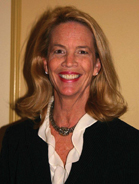
Ellen Alperen, PhD, is administrator at EPOCH Senior Healthcare at Chestnut Hill and a senior adjunct professor for Graduate Studies in Health Care Management at Cambridge College. She can be reached at: (617) 243-9990.